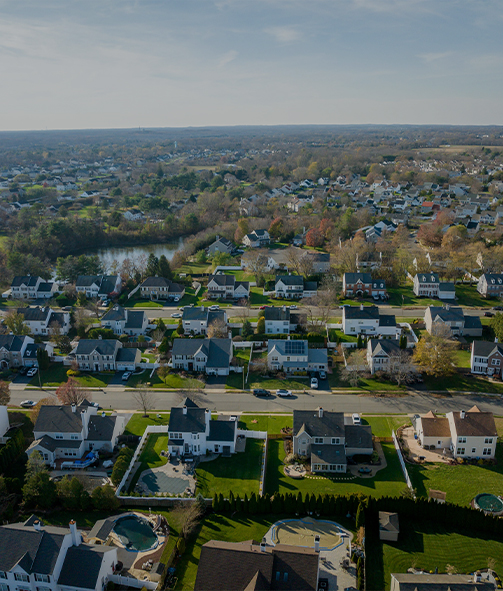
The term “property damage” might sound like something you’d encounter in a courtroom drama or a heavy-duty insurance policy. However, understanding what it means is crucial, especially if you or someone you know is dealing with a personal injury case. An experienced personal injury lawyer can help you navigate every aspect of your property damage claim.
What Is Property Damage?

Property damage refers to harm that is done to someone’s property. This could include damage to your car, home, personal belongings, or any other physical items you own. It’s different from bodily injury, which involves harm to a person’s body. For instance, if someone crashes into your car, the dents and scratches on your vehicle are considered property damage.
In legal terms, property damage involves the destruction or diminishment in value of someone’s property. It plays a significant role in personal injury cases, especially when the incident involves an accident where personal injuries do not cover things alone.
Examples of How Property Damage Occurs
There are many examples of property damage. Here are a few common ones:
Car Accidents
Car accidents are a very common type of cause of property damage. If someone hits your car, the repairs—or even the total loss of your vehicle—are considered property damage.
Natural Disasters
Events like hurricanes, floods, and fires can lead to significant property damage. Although these might not involve personal injury claims directly, the damage to your property might be severe.
Vandalism and Theft
Property damage may occur if someone breaks into your house or vehicle and damages or steals your belongings.
Construction Accidents
Problems that arise from faulty construction work resulting in damage to your home or another structure.
Each of these examples illustrates how property damage isn’t just a legal term; it impacts people’s lives in tangible ways.
The Importance of Valuation
One critical aspect of property damage is determining the value of what was lost or damaged.
This valuation is central because it helps establish how much compensation someone might be entitled to receive.
- Repair Costs: These are needed to bring your property back to its original condition. For cars, this might involve bodywork or replacing parts.
- Replacement Costs: In some cases, repairing the damaged property is impossible, so it needs to be replaced. For instance, if a car is totaled in a crash, the compensation should cover the cost of a similar vehicle.
- Diminished Value: This concept refers to the decrease in a property’s market value after it has been repaired. Even if an item is fixed, it might not be worth as much as before the damage.
Understanding these aspects is crucial for anyone who needs to file a property damage claim. Without a proper valuation, you might not receive adequate compensation.
Legal Process Involving Property Damage
If you find yourself dealing with property damage, the legal process usually follows these steps:
- Report the Damage: The first step is to report the damage to your insurance company. Provide all necessary documentation, such as photos, repair estimates, and police reports, if applicable.
- Assessment by the Insurer: The insurance company will likely send an adjuster to evaluate the damage and determine the payout.
- Negotiation: Sometimes, the insurance company’s offer might not cover all your costs, leading to negotiation.
A skilled personal injury lawyer can help you assess the value of your property damage and pursue the compensation you deserve.
When to Hire a Lawyer for a Property Damage Claim
There are situations where it might be beneficial to hire a lawyer, such as when:
- The other party disputes your account of what caused the damage.
- The insurance company denies your claim or offers less than you think is fair.
- You are not confident about handling the complexities of your claim alone.
A personal injury lawyer can help you navigate the process to ensure you receive the compensation you deserve.
How Can Lawyers Help?
Here are a few ways a lawyer can assist you:
- Explain Your Rights: A lawyer can help you understand your legal rights under state and local laws.
- Negotiate with Insurers: Insurance companies might not always offer a fair settlement, and having a lawyer can improve your negotiating position.
- File a Lawsuit: If negotiations fall through, a lawyer can help file a lawsuit to pursue compensation.
- Representation in Court: Should your case go to court, having a lawyer ensures you have professional representation.
Understanding and negotiating property damage claims can be challenging but a seasoned personal injury lawyer can help.
Contact a Personal Injury Lawyer for Help With a Property Damage Claim
Property damage might seem overwhelming, especially if you’ve never dealt with it. In personal injury cases, understanding property damage is crucial for ensuring you get the compensation you need to cover repair and replacement costs. Whether it’s a car accident or any other property damage, having proper guidance allows you to navigate this complex area confidently.
A personal injury attorney can help you understand your rights and options when dealing with property damage. Contact us at Noonan & McMahon, LLC at (732) 303-7857 for a free case review with a Monmouth County personal injury lawyer.
